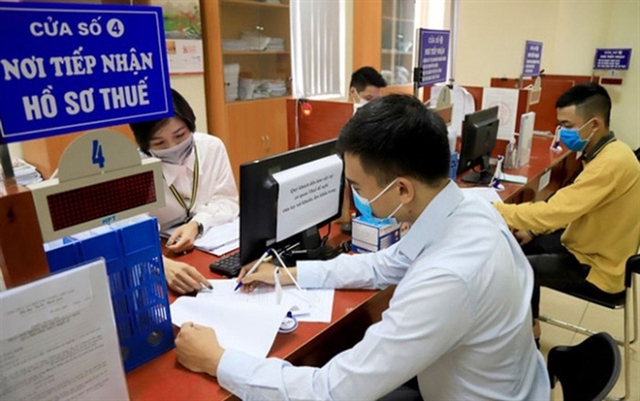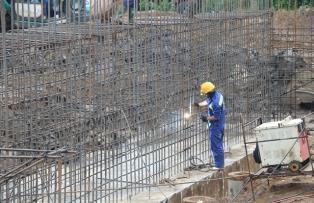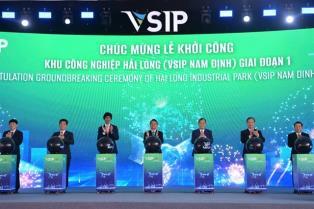Speaking at the event, experts and policymakers emphasised that simplifying tax regulations and administrative procedures remains key to supporting enterprises, particularly small- and medium-sized ones, in reducing compliance costs and expanding operations.

HÀ NỘI The Journal of Economics and Finance, a publication under the Ministry of Finance, hosted a symposium titled 'Improving Tax and Customs Policies to Promote Business Development' yesterday in Hà Nội.
The event focused on removing institutional bottlenecks and refining the legal framework to create a more transparent, efficient, and business-friendly environment in the new phase of economic reform.
Speaking at the event, experts and policymakers emphasised that simplifying tax regulations and administrative procedures remains key to supporting enterprises, particularly small- and medium-sized ones, in reducing compliance costs and expanding operations.
Deputy Director of the Department of Taxation Đặng Ngọc Minh noted that amid global economic uncertainty, fiscal measures - particularly tax policy - play a vital role in alleviating financial burdens and stimulating innovation.
Under the guidance of the Politburo’s Resolution No. 66-NQ/TW and the Government’s Action Programme under Resolution No. 140/NQ-CP, the Ministry of Finance is pursuing the ambitious goal of cutting 30 per cent of administrative procedures, time, and compliance costs for citizens and businesses. This policy concretises the direction of Prime Minister Phạm Minh Chính to reduce input costs and create room for business growth.
Reinforcing this reform spirit, the Prime Minister’s Official Dispatch No. 159/CĐ-TTg dated September 7, 2025, requires the Ministry of Finance to continue improving fiscal institutions and tax policies in line with income levels and development needs.
The Government has also directed the Ministry to intensify tax relief and land rent exemption measures to sustain production and employment.
In response, Minister of Finance Hồ Đức Phớc issued Decision No. 2421/QĐ-BTC on July 9, 2025, approving a comprehensive plan to simplify administrative procedures related to business activities within the Ministry’s jurisdiction. This move underscores the finance sector’s commitment to fostering a transparent and adaptable institutional environment.
According to the revised Law No. 67/2025/QH15 on Corporate Income Tax, the standard tax rate of 20 per cent remains unchanged to ensure long-term competitiveness. However, a more flexible regime has been introduced for small and micro enterprises, with rates of 15 per cent for firms with annual revenue under VNĐ3 billion and 17 per cent for those with revenue between VNĐ3 billion and VNĐ50 billion.
These preferential rates reflect the Government’s intent to help smaller enterprises accumulate resources, reinvest, and expand production - in line with National Assembly Resolutions 68/2025/QH15 on private sector development and 198/2025/QH15 on economic recovery support.
Alongside the tax sector, the Department of Customs is taking the lead in administrative reform within the Ministry of Finance. Deputy Director Trần Đức Hùng reported that as of May 2025, 214 administrative procedures and 29 business conditions had been reviewed. Following this review, 39 customs procedures were simplified and 15 outdated business conditions were abolished under Decision 2421/QĐ-BTC and the Prime Minister’s Decision 1848/QĐ-TTg.
Customs reform is also focusing on risk-based management and post-clearance audits, targeting a structure of 70 per cent green lanes, 25 per cent yellow lanes, and under 5 per cent red lanes by 2026 — a shift from “pre-clearance control” to “post-clearance supervision.”
Furthermore, the customs sector is advancing digitalisation and building a “smart customs” system integrated with specialised management agencies, ensuring transparency, minimising direct contact, and promoting trade facilitation.
At the policy dialogue session, participants - including policymakers, experts and business representatives - called for further streamlining of tax refund procedures, better coordination between customs and logistics systems, and stronger two-way feedback mechanisms between enterprises and regulators to ensure that tax and customs reforms truly serve business growth. VNS





